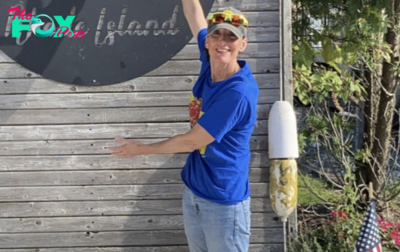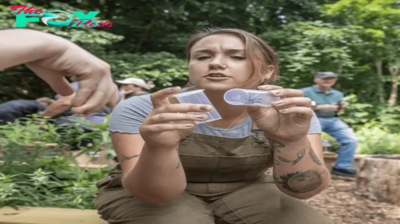Health
Homeless in RI: “Homeless Bill of Rights” can push change or become a deadly tool
Photo: Jesus the homeless, Timothy Schmalz, 2018
Introduced in the Senate by: Senators Tassoni, Lynch, Jabour, Doyle, and DeVall in January of 2012, the Homeless Bill of Rights was heralded 11 years ago and signed into law.
The intent noted that “at the present time, many persons have been rendered homeless as a result of economic hardship, a severe shortage of safe, affordable housing, and a shrinking social safety net.” – and that “no person should suffer unnecessarily or be subject to unfair discrimination based on his or her homeless status. It is the intent of this chapter to ameliorate the adverse effects visited upon individuals and our communities when the state’s residents lack a home.”
Here is the bill that resulted in the law: //webserver.rilegislature.gov/BillText/BillText12/SenateText12/S2052B.pdf
Here is the law as it stands today:

Back in 2012 there were 1,277 people counted as homeless – and 4 children (under 18) in Rhode Island. This year the count should be close to 2,000 total.
According to Invisible People, Rhode Island, Connecticut, Illinois, and Puerto Rico have successfully enacted legislation and created a Homeless Bill of Rights locally. Puerto Rico passed its own version of the law much earlier, in 1988. There are also proposals to do the same in California, Hawaii, Oregon, Vermont, and Missouri.
The existing bills vary a bit in their specific language. But in general, they all seek to affirm the following rights for unhoused residents. The right to:
- move freely in public spaces
- be free from employment discrimination
- be treated equally to housed residents by authorities
- emergency medical care
- vote, register to vote, and receive all necessary voter registration documentation
- a reasonable expectation of privacy in personal property
Invisible People noted that, “Puerto Rico’s Homeless Bill of Rights was broad in scope and has had some difficulty enacting its plan, while Rhode Island’s 2012 bill was more modest and judicially enforceable. Subsequent states have followed the Rhode Island model more closely when fashioning their bill proposals.”
ACLU
As homelessness steadily rises in America, so too does the willingness of state and local governments to use criminal laws against their homeless residents. Earlier this year, a federal appeals court found that laws making it illegal to sleep in public violate the Eighth Amendment’s prohibition on cruel and unusual punishment when they’re used against individuals – without access to shelter.
Maria Foscarinis, the founder and executive director of the National Law Center on Homelessness and Poverty, discusses the decision, criminalization broadly, and other systemic obstacles to addressing the needs of homeless people. Here is a podcast with Foscarinis:
Complaints using the Homeless Bill of Rights:
The RI Coalition to End Homelessness maintains a page on their website describing in lay terms the rights of those who are unhoused, or homeless. It also has a complaint form that it uses to help people who feel their rights have been violated – filling out the form implies it goes to both the Coalition and the RI ACLU. From their site:
Have your rights been violated? Follow these steps:
- Take photos, video or audio of the incident.
- Write down what you remember, or record as much of the incident as you can. Specifically what happened, where it happened, when, and who was involved.
- Write down or record the name, badge number, license plate, or any other identifying information about the discriminating person.
- Fill out the HBOR Violation Form found on this page.

https://docs.google.com/forms/d/e/1FAIpQLSc4-Gr2hq94zN3HYomxnxNAM5o4B8m29WVfQRPrnCG9iRbTfg/viewform
In addition, the Coalition provides a downloadable and print version of what they say are the rights of the homeless, encouraging people to print it and carry it with them:

“Rights” also go up against various regulations that speak to intervening where a person may be of danger to themselves or others. Likelihood of serious harm is described as:
(i) A substantial risk of physical harm to the person himself or herself as manifested by behavior evidencing serious threats of, or attempts at, suicide;
(ii) A substantial risk of physical harm to other persons as manifested by behavior or threats evidencing homicidal or other violent behavior; or
(iii) A substantial risk of physical harm to the mentally disabled person as manifested by behavior that has created a grave, clear, and present risk to his or her physical Health and safety.
It is a deciding factor especially in extreme weather conditions if an individual’s right to “use and move freely in public places” allows an individual to freeze to death or be seriously injured or cause injury to others, such as a child under 18.

While attorneys and departments debate the struggle over legal rights and bring suit against one another, we note one death after the other of people alone in the cold. A man on a park bench in Woonsocket. Another who died the one night he went to sleep in a friend’s house. A 47-year-old woman in the North End of Boston, known to police and the town, who died on a Saturday night two weeks ago, the coldest night recorded in a decade, sitting on a park bench, wearing a windbreaker.
The man under the overpass in Pawtucket. Quote from new “housing czar” Stefan Pryor: ‘to this man this is his home’.
As spring isn’t far away, and emergency shelters close, at least one homeless agency, the RI Coalition to End Homelessness is raising funds for tents and sleeping bags. Without serious intervention, including the finesse of convincing long-term homeless people to accept help and that this time when they do so, their experience will be different, we can expect to see tents pop up in every city and town in Rhode Island. As one homeless woman said to a reporter while getting food and a blanket to sleep outside, “yeah, they’re killing us with kindness”.
-

 Health13h ago
Health13h agoThe Surprising Benefits of Talking Out Loud to Yourself
-

 Health15h ago
Health15h agoDoctor’s bills often come with sticker shock for patients − but health insurance could be reinvented to provide costs upfront
-

 Health21h ago
Health21h agoHow Colorado is trying to make the High Line Canal a place for everyone — not just the wealthy
-

 Health1d ago
Health1d agoWhat an HPV Diagnosis Really Means
-

 Health1d ago
Health1d agoThere’s an E. Coli Outbreak in Organic Carrots
-

 Health2d ago
Health2d agoCOVID-19’s Surprising Effect on Cancer
-

 Health2d ago
Health2d agoColorado’s pioneering psychedelic program gets final tweaks as state plans to launch next year
-

 Health3d ago
Health3d agoWhat to Know About How Lupus Affects Weight



























